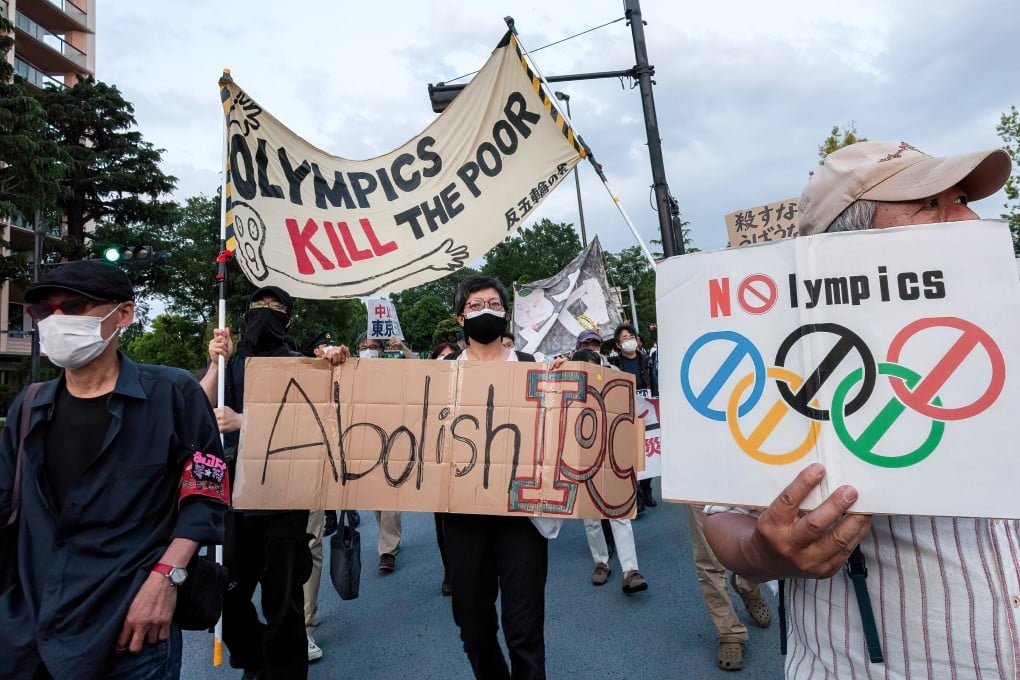Advertisement
Why Tokyo thinks the 2020 Olympics show must go on – even as Covid-19 booms
- Pressure is mounting on Yoshihide Suga and the IOC to cancel the Games as infections soar in Tokyo
- Yet the message from the IOC is clear: these Games are happening, whatever the cost
Reading Time:8 minutes
Why you can trust SCMP
18

Keep calm and carry on? In the first of our Tokyo Trail series on key issues surrounding the Olympics, we look at why the Japanese government wants the Games to proceed in July as scheduled, despite the pandemic.
They insist the 2020 Tokyo Olympics must take place, pandemic or no pandemic, but the ultimate decision may be out of their hands – as was the case in March last year when reluctant organisers were forced to delay the Games amid a rapidly growing Covid-19 pandemic.
Japanese Prime Minister Yoshihide Suga, local organisers and the International Olympic Committee (IOC) have all doubled and tripled down on the official line that the Games will go ahead on July 23 in Tokyo.
Advertisement
The financial and political costs of cancelling the Games are simply too great even as Japan extends a state of emergency in Tokyo and greater Osaka and local opinion polls weigh towards postponing or cancelling the Games amid a surge in Covid-19 cases.

Advertisement
Suga said he has “never put the Olympics first” and that the International Olympic Committee, not he and his government, has the final say on whether the Games, already delayed from last year because of the pandemic, will go ahead.
There is probably more at stake than at any other Olympics, not least the cost. These are the most expensive Olympics in history, according to an Oxford University study last year, and they are only becoming more costly.
Advertisement
Select Voice
Choose your listening speed
Get through articles 2x faster
1.25x
250 WPM
Slow
Average
Fast
1.25x